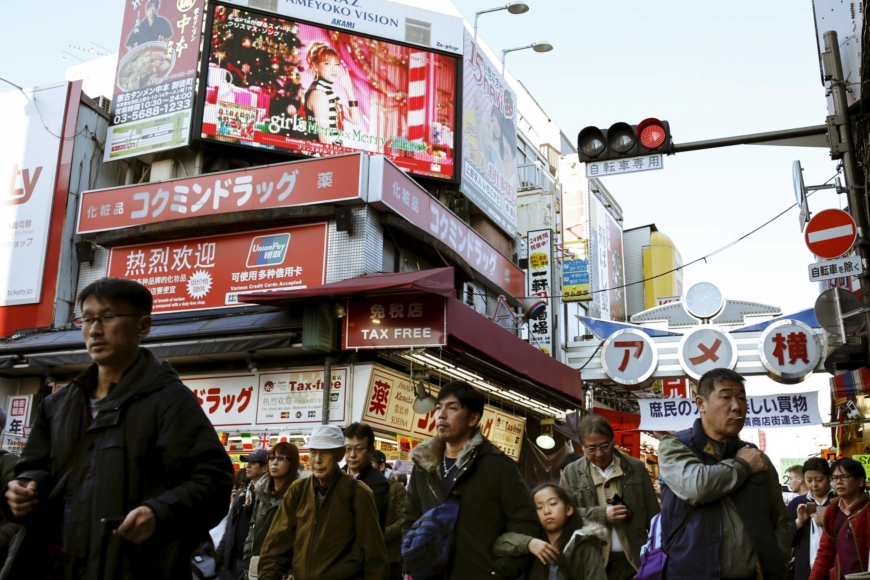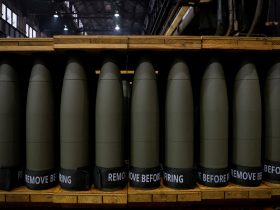The necessity to decentralize the nation’s capital has change into extra essential than ever, with authorities companies, companies and the inhabitants being concentrated in Tokyo past a wholesome degree. As dwelling with the coronavirus turns into extra regular and with the dangers of different pandemics rising, Japan must bodily disperse essential companies and services across the nation.
And with distant work turning into a part of the norm for the reason that declaration of the state of emergency earlier this yr, the nation has a greater understanding of how expertise can assist change many enterprise practices we thought wouldn’t be doable earlier than the COVID-19 outbreak. Within the age of the pandemic, some individuals have begun advocating for the concept of transferring away from the reliance on main cities the place congestion is a matter, and lots of firms are rethinking the necessity to keep workplaces in Tokyo. Some companies have even taken the drastic step of transferring their headquarters to rural areas similar to recruiting and staffing large Pasona, which determined to relocate its headquarters to Awajishima, Hyogo Prefecture.
Definitely, this sort of alternative for drastic change doesn’t come alongside typically, and if Japan doesn’t seize this second, Tokyo will stay one of the crucial concentrated capitals on the earth.
And but, sadly there are indicators that Tokyo might proceed to stay so. The primary huge signal the established order was not going to alter anytime quickly was when Tokyo was initially excluded from the Go to Journey marketing campaign, which inadvertently reminded individuals how a lot the nation depends upon town. One other concerned the actions taken with a purpose to be sure that the delayed Olympic and Paralympic Video games can be held subsequent yr, as some individuals wish to see as few disruptions as doable so issues go as deliberate. It seems that officers and the enterprise neighborhood concerned within the Olympics wished to make it possible for Tokyo was in good condition to welcome individuals from all around the world quite than push for main modifications.
With tourism being one of many hardest-hit sectors — which is fragmented with many small- and medium-sized companies — the federal government coverage to resuscitate the trade with subsidies is wise. The variety of enterprise closures, bankruptcies and job losses has been huge, and the Go to Journey marketing campaign, which started on July 22, has helped improve demand for home journey.
Regardless of the excessive hopes of the journey trade, nevertheless, Tokyo was excluded from this marketing campaign till Oct. 1 out of worry of triggering a second wave of COVID-19 within the nation. As well as, some locals in rural areas weren’t too proud of having guests from Tokyo because of worry that the virus would unfold to their communities.
The frustration amongst individuals within the trade, each in Tokyo and elsewhere, was appreciable, with some portray a bleak outlook for the way forward for their sector.
It’s too early to inform how a lot of an influence the inclusion of Tokyo from the Go to Journey marketing campaign has made, however the expectation is appreciable as near 25% of journey service suppliers are positioned in Tokyo. If the influence is as giant as is estimated — to the tune of ¥770 billion, in response to the Daiwa Analysis Institute — it’s probably that the significance of Tokyo will probably be reconfirmed.
Another excuse to maneuver operations out of Tokyo is innovation, with many native areas arising with new concepts and initiatives. There are three examples that stand out particularly.
Hoshino Resort Firm, which has historically catered to inbound vacationers and home clients with excessive incomes, has proposed the promotion of micro tourism, during which an try is made to construct an ecosystem round areas outlined as “native zones.” The idea is a departure from the nation’s extreme dependence on inbound journey and requires a renewed deal with home vacationers and people from close by areas.
The corporate hopes to assist rejuvenate smaller, native economies by selling the micro excursions and making a self-sustaining ecosystem involving lodging, transportation, journey companies, small retail retailers, makers of native merchandise and extra.
By in search of coordination and cooperation from quite a lot of gamers in an space, they wish to create tailor-made companies particularly to native populations whereas growing regional industries, arts and crafts.
The second instance is Kanazawa’s initiative. The capital metropolis of Ishikawa Prefecture has change into recognized for its many distinctive native charms, particularly turning into well-liked after the Hokuriku bullet practice got here into service, bringing in each home and inbound vacationers to the realm. It has change into an instance of “overtourism,” with journey service suppliers having grown busy accommodating the speedy surge of vacationers, native meals costs skyrocketing, whereas on the similar time many craftsmanship have began retiring of outdated age, making their expertise all of the extra valued.
Amid the COVID-19 pandemic, native companies have mirrored upon what made Kanazawa distinctive within the first place — the mix of contemporary seafood from the Sea of Japan and a tradition of hospitality that dates again to the Edo Interval.
With the decelerate in enterprise, native sushi cooks have had time to experiment and develop new menus. The scarcity of expert staff and skilled service employees has additionally change into much less of a difficulty as many companies now have time to coach replacements. And native clients who couldn’t take pleasure in what was accessible in their very own areas because of the inflow of vacationers at the moment are in a position to admire the values and choices of their very own neighborhood.
The third instance is the usage of expertise. NewMe, a small robotic developed by Avatarin, a derivative from All Nippon Airways, gives the chance to attach small retailers in distant places to clients anyplace. Using this robotic at retail retailers specialised in noodle and sake in Nagasaki Prefecture is an instance of how clients can expertise procuring by interacting with retailer employees, as if they really visited the retailers. Many small retailers in native areas have little means to speak their choices broadly to the individuals in distant places, together with these in huge cities. Now with the assistance of robots like NewMe and an web connection, small companies are in a position to join immediately with clients from throughout.
Quite than relying upon the inhabitants and the sheer financial measurement of Tokyo, native areas may seize nice alternatives by experimenting with new approaches to prosper with like-minded companies and neighborhood members.
Such examples present that necessity and implementation of artistic and modern options might be developed in native areas for native areas. It actually can add new views in serious about the overcrowded metropolis that’s Tokyo.
Yoko Ishikura is a professor emeritus of Hitotsubashi College and serves as an unbiased advisor within the space of world technique, competitiveness and international expertise. She is a member of the World Financial Discussion board’s Knowledgeable Community.















Leave a Reply